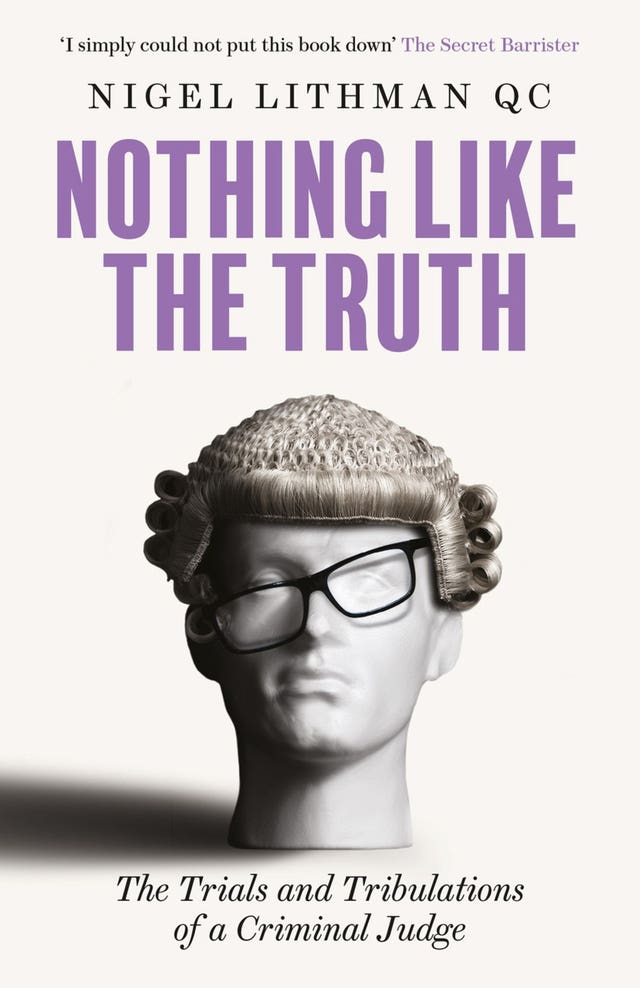The criminal justice system is “close to breaking down”, a retired judge has warned, as he accused the Government of “failing to grapple” with the courts backlog.
Nigel Lithman QC, who left the bench in August after four years, said the current projections for reducing the number of cases waiting to be dealt with by magistrates and crown courts is “wholly unacceptable”.
He said part of the solution to tackling the problem more quickly would be to expand the use of remote proceedings, so most administrational hearings can take place online to free up courtrooms for trials, while offering better pay would boost the number of criminal lawyers available to take on work.
The former barrister, who as head of the Criminal Bar Association (CBA) led the first strike at the England and Wales bar in 2014 over concerns that pay for publicly funded work was too low, said the “backlog has not simply arisen from the lockdown” and was exacerbated after previous cuts to justice spending, adding: “So what that’s started, lockdown finished.”
Last month, Whitehall’s spending watchdog warned the criminal courts backlog would “remain a problem for many years”.
The National Audit Office cited Ministry of Justice (MoJ) estimates that the number of outstanding cases for crown courts in England and Wales could be between 17% and 27% higher than pre-pandemic levels by November 2024.
Mr Lithman, whose book on his career Nothing Like The Truth: The Trials And Tribulations Of A Criminal Judge is published on Thursday, told the PA news agency: “I can see the system is close to breaking down and I regard the Ministry of Justice as being blindfolded. They refuse to simply see and deal in a way that they can with what’s happening.

The pay rows of 2014 saw criminal barristers and solicitors start to leave the legal profession and that “trickle has become a flood”, he said, adding: “You need more troops in order to deal with the backlog.
“You find yourself unable to man every court in the country every day because of a shortage. So that’s exacerbating the backlog. And that’s something that the Government fails to grapple with and always has done and always will.
“Remuneration is a central issue.”
Making more widespread use of remote hearings for pre-trial and progression hearings, which make up a “substantial part of the system”, would free up the courts to hear trials, he said, but added: “There seems to be a resentment, some sort of strange attitude towards that approach, which is clearly the better approach.”
Mr Lithman said his book is a humorous “warts and all” look at life in the criminal courts, discussing the “rich seam” of experiences encountered as he rose through the ranks, tackling controversial and comical subjects as well as the serious, hard-hitting cases he faced.
A Ministry of Justice spokesman said: “Last month’s spending review secured our largest funding increase in more than a decade – with almost half a billion pounds to help drive down court backlogs as we recover from the vast impact of the pandemic.
“This is on top of significant action taken since the start of the pandemic, including the rapid rollout of technology which now facilitates more than 13,500 remote hearings each week, and an additional £51 million investment to support the legal aid sector.”






